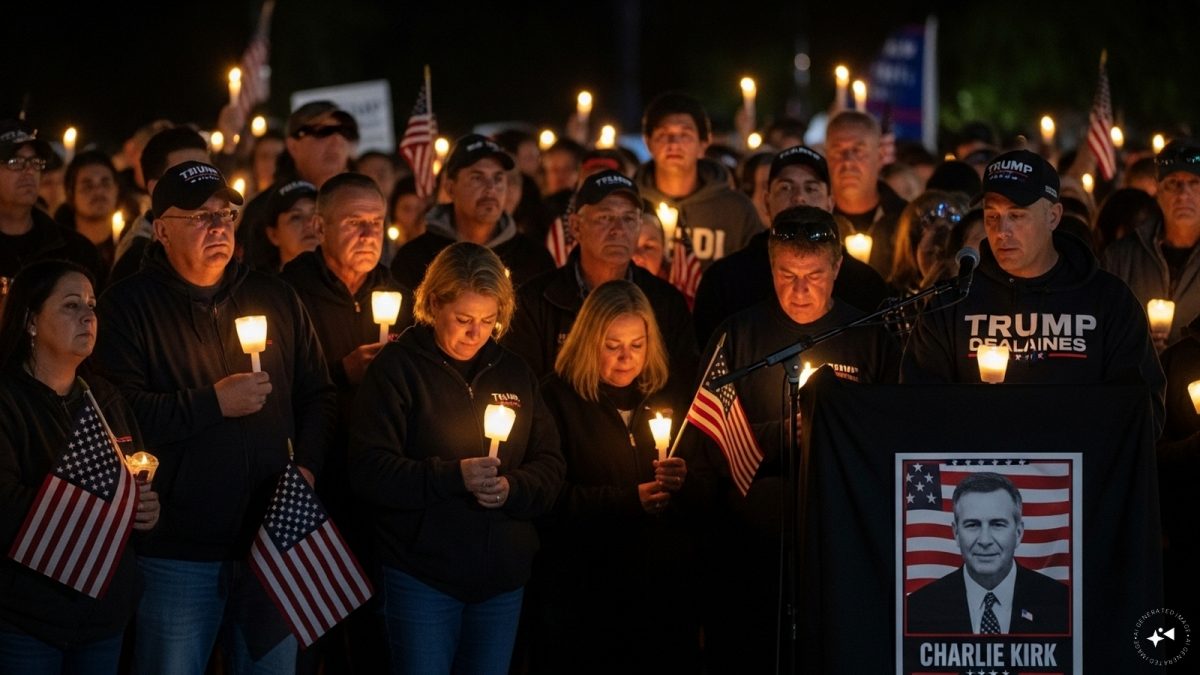The aftermath of activist Charlie Kirk’s assassination has ignited a fierce debate within the Republican Party, exposing a deep divide over free speech, political accountability and what some describe as a culture of consequences.
Since Kirk, 31, was shot at a Utah college campus while engaging in civil discourse, the White House has escalated its rhetoric against perceived hate speech, drawing both support and criticism from conservatives. President Donald Trump and senior officials have publicly threatened left-leaning groups and individuals over statements deemed unacceptable in the wake of Kirk’s death.
Attorney General Pam Bondi pledged to prosecute those responsible for hate speech, while Federal Communications Commission Chair Brendan Carr warned broadcasters of potential repercussions after a television host made remarks he opposed.
Vice President JD Vance called for job losses for anyone celebrating Kirk’s death, and Secretary of State Marco Rubio, along with Defense Secretary Pete Hegseth, issued penalties for foreign nationals and U.S. military personnel who expressed similar sentiments.
Framing these actions as a new “culture of consequences,” Trump’s son, Donald Trump Jr., argued on X that, “They’re not losing their jobs to cancel culture, they’re losing them to Consequence Culture.”
Yet, the approach has not united conservatives. Critics within the party, including former George W. Bush adviser Karl Rove, U.S. Senator Ted Cruz, and commentator Tucker Carlson, caution that leveraging Kirk’s death to target political opponents or regulate speech risks setting a dangerous precedent.
Impact Shorts
More Shorts“If the government gets in the business of saying: ’We don’t like what you the media have said. We’re going to ban you from the airwaves if you don’t say what we like,’ that will end up bad for conservatives,” Cruz said on his Friday podcast. He described Carr’s threats to fine broadcasters or revoke their licenses as “dangerous as hell.”
Trump, while largely backing Bondi and Carr, dismissed questions distinguishing cancel culture from consequence culture as a “trick,” asserting, “I’m a very strong person for free speech,” while lamenting what he described as persistently unfair media coverage.
White House deputy chief of staff Taylor Budowich affirmed that the administration supports free speech, though he added, “People are free to exercise it. However, sometimes if you don’t have anything nice to say, then it’s best to not say anything at all. There are some people who would benefit from internalising that adage.”
Concerns about free speech under threat
The crackdown has raised alarms among First Amendment experts, who emphasize that the Constitution protects even hateful speech. Kevin Goldberg, vice president of the Freedom Forum, warned, “Free speech is obviously under attack. The threatening statements made by current FCC Chairman Brendan Carr are evidence of a threat to the First Amendment.”
Carr’s recent dispute with ABC comedian Jimmy Kimmel over remarks regarding Kirk supporters exemplified these concerns. Following Carr’s threats of regulatory action, ABC pulled Kimmel’s show from the air, sparking widespread criticism across the political spectrum.
Former President Barack Obama condemned the move, tweeting, “After years of complaining about cancel culture, the current administration has taken it to a new and dangerous level by routinely threatening regulatory action against media companies unless they muzzle or fire reporters and commentators it doesn’t like.”
Republicans, in turn, have accused Democrats of hypocrisy, citing prior attempts by the Biden administration to limit conservative speech on COVID-19-related issues through social media moderation, a matter that reached the Supreme Court. Republican strategist Shermichael Singleton said, “I just think it’s a bit hypocritical.”
Polling from Reuters/Ipsos indicates growing caution among Democrats in political conversations. Around 41% of Democrats surveyed in August reported feeling less free to speak their minds about politics, up from 30% in 2017, while only 17% of Republicans reported similar restraint, down from 30% eight years earlier.
Internal conservative backlash
Even within Republican ranks, there is unease over the administration’s post-Kirk actions. Right-wing podcaster Matt Walsh criticised Bondi’s comments regarding potential legal action against companies like Home Depot for not promoting Kirk, writing on X, “Get rid of her. Today. This is insane. Conservatives have fought for decades for the right to refuse service to anyone.”
Carlson also warned against using Kirk’s death to justify expanding hate speech laws. “You hope that a year from now the turmoil we’re seeing in the aftermath of his murder won’t be leveraged to bring hate speech laws to this country,” he said. “And trust me, if it is, if that does happen, there is never a more justified moment for civil disobedience.”
The debate highlights a fundamental tension in American conservatism: how to respond to political violence without eroding free speech rights. As the Trump administration continues to navigate its messaging, the controversy over consequence versus cancel culture is likely to shape both policy and political discourse in the months ahead.
With inputs from agencies


)

)
)
)
)
)
)
)
)



